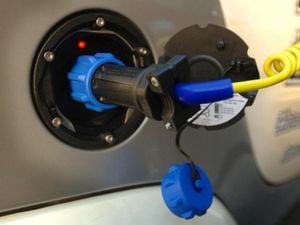Electric car study analyses impact of charging on National Grid
Findings from Electric Nation report will help power operators influence charging behaviours and actively manage them if necessary

Smart off-peak charging is a reality for most EV owners – that’s among the findings of the largest UK trial of its kind.
Project organiser Electric Nation carried out the study over 18 months to provide data on how to deal with the growing number of EVs that need charging. It involved 673 plug-in car owners, who were encouraged to use smart charging systems via a series of apps.
The systems aim to reduce the burden on the National Grid while minimising disruption to planned journeys, usually by trying to schedule charging in off-peak times – such as overnight.
Data on the owners’ charging habits was monitored, including how often the cars were charged, how long they were charged for and how much energy was consumed. More than 40 kinds of plug-in vehicle were included in the survey, including full EVs and plug-in hybrids.
More than 140,000 charging sessions were recorded, and Electric Nation says the data suggests there is sufficient flexibility in owners’ charging needs to make smart off-peak charging a reality for most EV owners.
For example, vehicles were plugged in for more than 12 hours on average – suggesting the majority of charging takes place at home overnight. However, charging rarely takes place for the full time – with the average session starting with the battery already more than 50 per cent full.
EV owners were also reported to charge their cars an average of three times per week – a figure that will presumably reduce as electric vehicle ranges increase.
The full dataset will now be analysed and revealed over the coming months. It’s eventually expected to help power network operators influence charging behaviours by encouraging more off-peak charging in future.





